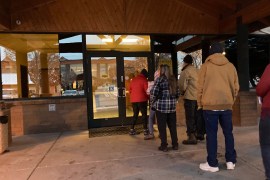In Fight Against Drug-Related HIV Transmission, Underground Group Carries Out Illegal Needle-Exchange in Pittsburgh
Although needle-exchange programs are illegal in Pennsylvania, Prevention Point Pittsburgh, a volunteer organization, takes to the city streets every week to exchange clean needles for dirty ones and to help sterilize drug paraphernalia, the Pittsburgh Tribune-Review reports. Allegheny County Health Department officials are considering setting up a legal needle-exchange program to stem the spread of HIV through intravenous drug use, which doubled in the area last year from nine to 18 reported cases of transmission, according to health department statistics. However, after hearing public opinion on the proposed program, county officials are not set to begin debating the proposal until Sept. 5. In addition, program approval would not "make what Prevention Point Pittsburgh does legal," health department spokesperson Guillermo Cole said, explaining that the program would be "different because it would be authorized by the Board of Health, which has the legal standing to do it" and would include HIV testing and drug treatment services that PPP does not offer. PPP officials said that they would "gladly" work with the health department, but until a program is in place, they will continue to operate as they have. Law enforcement officials have generally "looked the other way" for the six years that PPP has operated. "It's tough for us because, basically, they're trying to help people. They're ultimately trying to get people to stop destroying their bodies and spreading disease. But there is that Pennsylvania statute, and we have to enforce it if people complain," Pittsburgh Police Chief Robert McNeilly said. James Harper, director of the U.S. Drug Enforcement Administration's Pittsburgh office, said that needle-exchange efforts "just mak[e] things worse" and "almost condon[e]" the drug use. Nationwide, more than a third of new HIV cases result from dirty needle sharing among drug users, and that number rises to nearly two-thirds of new HIV cases among women (Prine, Pittsburgh Tribune-Review, 7/30).
This is part of the Morning Briefing, a summary of health policy coverage from major news organizations. Sign up for an email subscription.





